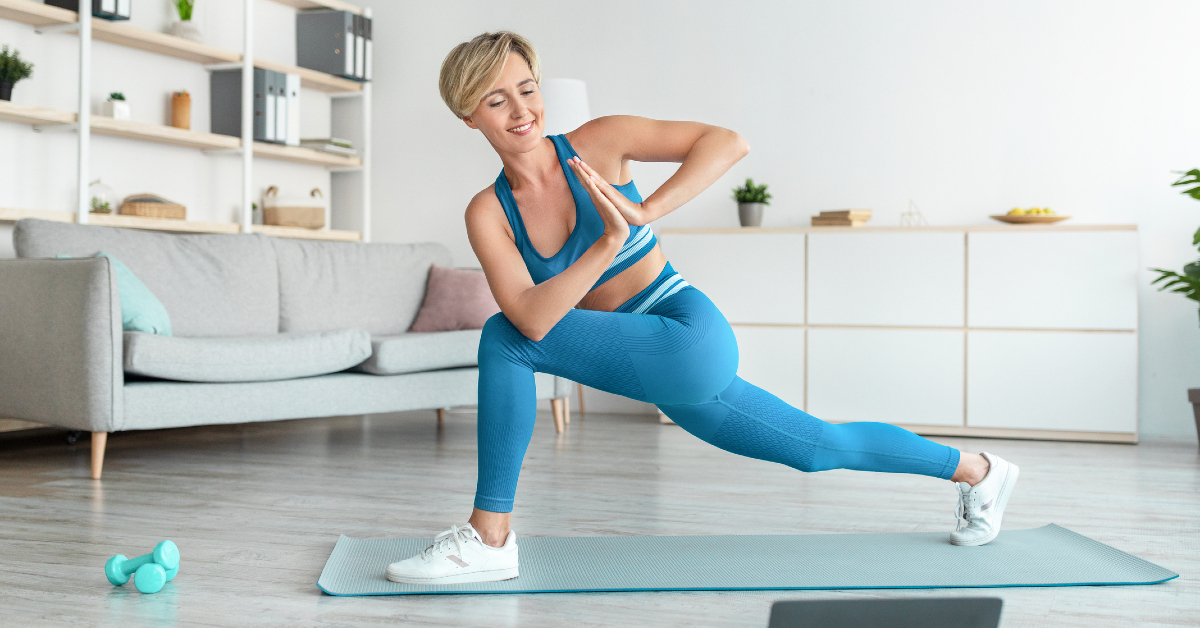Sleep, glorious sleep! It’s that deliciously replenishing thing that can help make the following day either productivity-packed, or a downright yawn fest.
Exercise scientist and all-round great fitness guy, Daniel Swanbury, says sleep is wonderful for your body: “Sleep is probably the most important variable when it comes to health and wellbeing – it’s the primary time of recovery, when your body takes advantage of all the hard work you’ve been doing throughout the day.”
The benefits are plentiful. “Sleep improves brain function and alertness, helps to balance hormones that are responsible for hunger and fullness, and is a time where you build muscle and your nervous system replenishes,” says Daniel.
So what can we do to get a truly dreamy night’s sleep?
Professor Dorothy Bruck, Sleep Psychologist at the Sleep Health Foundation, gives us the low down:
1. Get Outdoors
The body clock drives our ‘circadian rhythm’ (a 24-hour cycle that lets our bodies know when to sleep, plus regulates other biological activity). Think of it like a wave that’s high in the daytime, and dips at night – and the more it goes up thanks to things like natural light during the day, the more it goes down during the night, meaning you’re more likely to have a deeper sleep.
Time spent exposed to good natural lighting is beneficial throughout the day, but is especially great in the morning. Open the blinds as soon as you’re awake to sharply shut off the hormone melatonin that helps us feel sleepy at night.
2. Exercise
Exercise helps your body rhythm ‘wave’ ride high during the day, for a good sleep at night. Experts used to recommend not to exercise before bed, but more and more research shows us that exercise at anytime is better than not doing it at all. It is best, however, to try not to do really strenuous exercise (like the 12WBT Exercise Plans prescribe) right before bed.
3. Only go to bed when you’re sleepy
There’s a difference between feeling tired, which can be both physical and mental fatigue, and sleepiness which is the desire to fall asleep. You might feel tired, but this doesn’t necessarily mean you’re ready for sleep.
If you wait until you’re sleepy – when you have a high sleep drive – it’s usually easiest to fall asleep. Afternoon naps or falling asleep in front of the TV can reduce your sleep drive at bedtime, so keep this in mind if you’re an avid napper and are struggling to fall asleep.
4. Keep stimulants to a minimum
For those who are easily stimulated, try to avoid caffeine, like coffee, later in the day. Green tea has low levels of caffeine, so shouldn’t be a problem. Research has shown that having a bedtime chamomile tea for two weeks could actually been a good thing – although the benefits are only subtle.
A glass of alcohol, like a red wine, before bed every now and again isn’t going to hurt, but any more than a small glass may affect the second half of your sleep.
(A note from dietitian Chantelle: “Foods high in tryptophan coupled with a carbohydrate can also help you sleep. Warm milk and a small bikkie before bed are popular for a reason!”)
5. Wind down the bright tech before sleep
Try to avoid using computers and laptops for the hour or two before sleep – it’s their blue light that can suppress the hormone that helps you sleep – and instead opt for a book or magazine, or try a warm shower or bath which can elevate the core body temperature (this is a good thing before bed). Watching a relaxing TV show from the other side of the room isn’t as much of a problem as computers. As for mobile phones, this is still an open question – but do make sure you put it on silent before hitting the hay.
6. Don’t snuggle up with your worries
Take the time to write out any worries or tasks on your mind earlier in the day, along with options for dealing with them. If they do start to creep into your mind once you’re in bed, try to turn your thoughts to relaxing things, like a holiday or favourite memory.
7. Cull the distractions
If you have trouble going back to sleep, try reducing disturbances like noise, light or temperature by dealing with the issue: this might mean getting a fan or heater, or better curtains. If noise is a problem, earplugs can be great. They take a bit of getting used to, but can help immensely.
8. Love thy sleep
Sleep is a positive thing! Try an affirmation like “I’m going to have a good night’s sleep tonight” before getting into bed.
And remember, sleep doesn’t have to be perfect, so we don’t need to put pressure on ourselves – in fact, sometimes it’s hard to tell if we’re actually awake or asleep, so we may be getting more sleep than we think.
Many people also don’t realise that sleep is a roller coaster of lighter and deeper sleep, and waking up during the night is normal. The key is getting back to sleep relatively soon – avoid clock watching or checking your phone. If you’re still lying there feeling frustrated, dim the lights, and do something relaxing away from your bed until you feel sleepier.
And just remember ‘rest is good’: be patient and don’t expect too much.
You can read more about sleep at Sleep Health Foundation, or if you have concerns about recurring sleep problems, visit your GP.















I used to be a personal trainer but now drive a car and have a fairly sedentary lifestyle doing remedial massage for work instead. I’ve also slipped into some bad eating habits and I still don’t feel that nutrition is or has ever been my strong point. I’m in my early 30’s and wanting to lose around 25kgs, what is a healthy time-frame for someone my age to lose that weight without ending up with flappy elephant skin?
Hi Katharine – It’s fantastic to hear you’re keen to get back on track with your health and fitness.
How much weight you might aim or expect to lose over any given timeframe really depends on a number of variables like age, gender, height, current weight, your proportion of lean muscle mass, your current level of fitness, the amount and type of exercise you do, the intensity with which you perform that exercise…the list goes on!
For that reason, there is no hard and fast calculation, but as a rough guide you can expect that:
If you weigh: You may lose between:
Less than 100kg 0.5-1.5kg per week
100-129kg 1.5-3kg per week
More than 130kg 1.5-5kg per week
Note for breastfeeding mums, the Australian Breastfeeding Association recommends that 500g per week is generally safe.
Wishing you all the very best with your health and fitness goals!
Leila
12WBT Support Crew
Hi I’m a bloke can I use this exercise . Have u got something for a 60 year old guy. I’m fix sorta guy most of me mates say I look 50. So have got any exercise to get rid of tummy thanks yours luke
Hi Luke! We absolutely do have a lot of men who join us and the Program certainly works equally well for men.
In regards to the Fitness Programs, by completing the Pre-Season Task “Fitness Test” you will find out which programs are recommended for you. Whether you are an absolute beginner or super fit, 12WBT has a program to cater to you!
In terms of the Meal Plans, we have different Calorie Levels for our male members. An adult man has on average 20 percent more lean tissue (muscle) than a woman of similar size and age, and thus a lower body fat percentage. This alone means that a man’s average calorie needs are greater than a woman. The exception is pregnancy and breast-feeding, when a woman’s calorie needs increase, typically by 500 calories/day.”
Now would be a perfect time to sign up as you will still have plenty of time to complete your all important Pre-Season Tasks before the Round kicks off on Monday 15th June. If you are keen to both join us, please head to: https://go.12wbt.com/sign-up
Wishing you all the very best with your health and fitness goals Luke and I hope that we see you both on board!